Eucalyptus farming is gaining popularity gradually. It is a medicinal/herbal crop and the leaves and oil are used for making medicine. If you have land, then commercial cultivation of eucalyptus can be a good and profitable agribusiness for you.
Eucalyptus is actually a genus of over 700 species of flowering trees, shrubs or mallees in the myrtle family, Myrtaceae. They are commonly known as eucalypts, along with several other genera in the tribe Eucalypteae, including Corymbia.[1]
Plants in the genus Eucalyptus have bark that is either smooth, fibrous, hard or stringy, leaves with oil glands, and sepals and petals that are fused to for a ‘cap’ or operculum over the stamens. The fruit of these plants is a woody capsule commonly referred to as a ‘gumnut’.
The eucalyptus trees vary in size and habit from shrubs to tall trees. Trees generally have a single main stem or trunk but many ucalyptus are mallees that are multistemmed from ground level and rarely taller than 33 feet.
There is no clear distinction between a mallee and a shrub. But in eucalyptus, a shrub is a mature plant less than 1 meter tall and growing in an extreme environment. Eucalyptus is a native tree of Australia and Tasmania. About three-quarters of Australian forests are eucalypt forests.
Eucalyptus is a fast growing tree in the world and attained great height. One of the species of eucalyptus tree attained height of 480 feet. It is known by many other names is many different places around the world. It’s other names include gum tree, nilgiri tree, sofeda, red iron tree etc.
The eucalyptus tree is cultivated and used for many different purposes. It is planted for fuel wood, poles, timber, and biomass for essential oil purpose. Essential oil of eucalyptus has special space in Ayurveda Treatment. It is a flowering tree, and is a great source of nectar for the honey bees.
Uses of Eucalyptus
As you know, the eucalyptus is a medicinal/herbal tree. The dried leaves and oil are used for making medicine. People use eucalyptus for many conditions including head lice, plaque and gingivitis, asthma, bronchitis and many other purposes. It is also used in soaps, mouth wash liquids, massage oil, repellents and air fresheners. It helps in curing common flu, cold and fever.
Benefits of Eucalyptus Leaves
The eucalyptus is an evergreen tree which is widely used for it’s medicinal properties. The leaves can be made into essential oil for tropical use or inhalation. Here we are shortly describing about the top benefits of eucalyptus leaves.
- Eucalyptus leaves are great source of antioxidants, particularly flavonoids, which protect your body from oxidative stress and free radical damage.
- You can’t eat fresh, whole eucalyptus leaves, but the dried leaves can be made into tea.
- Eucalyptus is a good source of antioxidants and generally recognized as safe for adults. However, children are at high risk of eucalyptus toxicity and should get approval from a healthcare professional before drinking this tea.[2]
- Eucalyptus is widely used as a natural cold remedy and it is a common ingredient in cold and cough products. Research has shown that it can decrease mucus and expand the bronchi and bronchioles of your lungs. It is also a natural anti inflammatory agent.[3]
- Using eucalyptus may improve dry skin by increasing it’s ceramide content. Topical eucalyptus leaf extract has been found to boost skin ceramide production, water-holding capacity, and skin barrier protection. It contains a compound called macrocarpal A, which appears to stimulate ceramide production.[4]
- Inhaling eucalyptus essential oil may decrease pain. Eucalyptus contains many anti-inflammatory compounds, such as cineole ad limonene, which may act as pain relievers.[5]
- Eucalyptus oil is associated with decreased blood pressure and anxiety. It’s believed to active the parasympathetic nervous system, which promotes relaxation.
- Chewing gum with eucalyptus leaf extract has been found to significantly decrease plaque buildup on teeth and signs of gum disease. It’s added to many types of mouthwash and other oral health products.
- Eucalyptus oil is a natural insect repellent, mainly due to it’s eucalyptol content. It many also be an effective treatment for head lice.
Benefits of Eucalyptus Oil
The eucalyptus oil has many benefits. Here we are listing the top benefits of eucalyptus oil.
- Eucalyptus oil has been used for relieving coughing for many years. And today, some cough medications have eucalyptus oil as one of their active ingredients.
- Eucalyptus oil not only can silence a cough, but also it can help you get the mucus out of your chest. Inhaling the vapor made with the essential oil can loosen mucus so that when you do cough it’s expelled. Using a rub containing eucalyptus oil will produce the same effect.
- You can use eucalyptus oil for keeping the pests away from your property.
- The Australian aborigines used eucalyptus leaves for treating wounds and preventing infection.
- Inhaling steam with added eucalyptus oil, may help respiratory conditions such as asthma and sinusitis.
- Eucalyptus oil has potential as a treatment for diabetes. Experts believe that it may play a role in lowering blood sugar in people with diabetes.
- The anti-inflammatory properties of eucalyptus can ease symptoms of herpes. Applying eucalyptus oil to a cold sore may reduce pain and speed up the healing process.
- Eucalyptus oil can be used to fight the germs that cause unfortunate mouth odor, because of it’s antibacterial properties. Some toothpastes and mouthwashes contain the eucalyptus essential oil as an active ingredient.
- Some research suggest that, eucalyptus oil eases joint pain. It may also be helpful to people experiencing back pain or those recovering from a joint or muscle injury.
Advantages of Eucalyptus Farming
Eucalyptus is a medicinal/herbal plant. It grows well in almost every areas around the world. Commercial eucalyptus farming has many advantages.
- You can start commercial production of eucalyptus for making profits. Here we are describing about the top advantages/benefits of starting eucalyptus farming business.
- Starting commercial eucalyptus farming is a good business, especially if you can market your products easily.
- You can start this business if you have empty, unused land. Planting some eucalyptus trees can be a good way for making some extra income.
- It is a medicinal/herbal tree. You can target selling your products to some Ayurveda companies.
- It is a pretty common business idea. Many people are already doing this business.
- Caring eucalyptus trees is very easy. So, you can take this opportunity for making some extra profits.
- The eucalyptus trees can be grown in almost everywhere.
- Demand of the eucalyptus products is increasing.
- You can produce other crops from the field which you use for growing eucalyptus trees.
- Production costs are relatively less, but returns are good.
- Eucalyptus leaves and oil both have many benefits. So, you can enjoy all these if you start eucalyptus farming of your own.
How to Start Eucalyptus Farming?
Starting both small scale and commercial eucalyptus farming is very easy and simple. The eucalyptus trees generally require less care and other management, and they grow well in all types of environment.
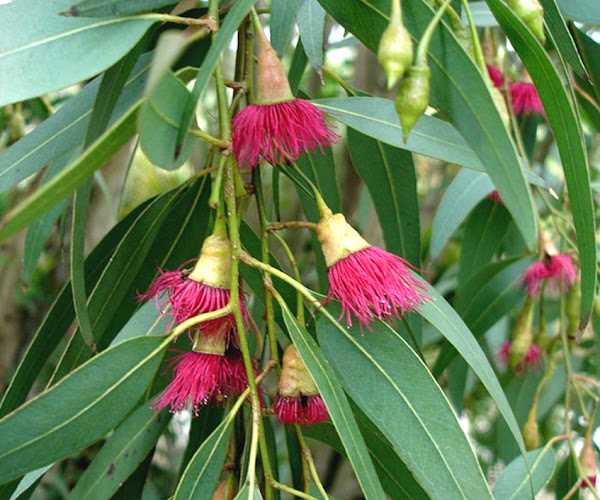
Almost all types of soil are good for eucalyptus farming. But full sun is a mandatory for growing eucalyptus trees. Here we are trying to describe more information about eucalyptus tree cultivation from planting, caring to harvesting and marketing.
Step 1. Select Good Location
You have to select a good location for starting your eucalyptus farming business. The eucalyptus trees generally grow well in almost all types of soil. But availability of full sun is very important.
Deep, organic content rich and well drained loamy soils with sufficient moisture content are considered best for eucalyptus cultivation. The growth will stagnate on poor heavy, sandy soils, highly alkaline and saline soils.
But some eucalyptus hybrid species are successfully grown in alkaline and saline soils. The trees generally grow very well in the soils with pH range of 6.0 to 7.5.
Step 2. Prepare the Soil
The eucalyptus trees grow well in fertile and organic content rich soils. So, prepare the soil perfectly for growing these plants. The land should be free from weeds and any previously cultivated crop roots. Several ploughings can make the soil to the fine tilth stage.
Plough the land about 3 months before planting the trees. Other land preparation activities such as ridging, harrowing and leveling should be completed early for monsoon plantation.
Eucalyptus is mainly planted for industrial purpose. For commercial plantation make land weed and stubble free. For plantation dig pit of size 30cm x 30cm x 30cm or 45cm x 45cm x 45cm.
Step 3. Climate Requirement For Eucalyptus Farming
The eucalyptus trees can be grown in a wide variety of climatic conditions. But they thrive best in tropical to temperate climatic areas. The eucalyptus trees can be grown up to 2000 to 2200 m altitude. They require between 4 cm and 40 cm annual rainfall for good growth.
They have high degree of drought resistance, hence can be cultivated in drought areas and waste lands. They can be grown in the regions with temperature range of 0°C to 47°C.
Step 4. Best Time For Eucalyptus Cultivation
Monsoon is the best time for plating eucalyptus plants. Although, you can plant anytime if you have good irrigation facilities.
Step 5. Choose a Variety
There are several varieties of the eucalyptus plants. Most common and popular eucalyptus varieties are Eucalyptus camaldulensis, FRI 4 and FRI 6, Eucalyptus globules and Eucalyptus citriodora.
Step 6. Purchase Seeds
The eucalyptus trees are grown from seeds. You can purchase the seeds from any of your nearest seed supply stores. Or consider ordering the seeds online.
Step 7. Seeds Per Acre
Exact amount of required seeds vary on many different factors. With spacing of 1.5 x 1.5 meter gives plant population near 1690 plant per acre. Whereas spacing of 2 x 2 meter accommodates near about 1200 plants per acre.
Step 8. Planting
Best time for plating the eucalyptus transplant is from June to October. For high density planting select spacing of 1.5m x 1.5m (plant population near about 1690 plant/acre) or 2m x 2m (near about 1200 plants/acre).
or initial years, intercrops can be taken. When intercropping is done choose wider spacing of 4m x 2m (near about 600) or 6m x 1.5m or 8m x 1m. Crops like turmeric and ginger or medicinal plants can be taken as intercrops. 2m x 2m is most widely used spacing.
Step 9. Caring
The eucalyptus plants generally require less caring and other management. Although, taking additional caring will help the plants to grow better. Here we are describing about the caring process of eucalyptus farming.
Fertilizing
The seedlings are transplanted in the main field 3 to 5 months after sowing. Seedlings are planted in pits with onset of monsoon.
Apply neem based nutrients along with Phosphate at the rate of 50 grams and vermicompost at the rate of 250 grams per pit during the time of planting. Neem based nutrient protect seedlings from termite damage.
In first year apply 50gm of NPK fertilizer per plant. In second year, apply NPK (17:17:17)@50gm per plant. Also take hand weeding operation and keep check on weed growth.
Watering
The eucalyptus plants generally require less water. Although, irrigation should be carried out as soon as seedlings are transplanted in the main field.
Drip irrigation can be adopted for keeping moisture content intact. However, number of irrigation depends on the soil type, weather conditions and moisture content in the soil.
Although, the eucalyptus is a drought tolerant tree, irrigation should be provided for better growth and good production. Especially, water the plants during the summer or hot dry season.
Mulching
Mulching helps to retain moisture into the soil. And it also helps to control weeds from the garden. Use organic materials as mulch.
Controlling Weeds
Weeds consume nutrients from the soil. So always try to control the weeds from the field.
Thinning and Pruning
Thinning and pruning is essential in case of high density plantations. Mechanical thinning should be done after first year of planting. Remove the unwanted, weak and poor seedlings.
Thinning is actually done to get large size and straight poles. Exact number of thinning operations depends on objectives of the management.
In case of clones, no thinning and pruning is required up to harvesting stage. Pruning is required at the end of second year or after beginning of 3rd year.
Step 10. Control Pests and Diseases
Pests and diseases are less in commercial eucalyptus farming business. Beetles are the most common pests found for growing these trees. Contact your nearest agriculture department for controlling diseases.
Step 11. Harvesting and yield
Timely harvesting is very important for having good profits. Yield may vary depending on various factors. Yield depends upon farm management practices, plant density, climate etc. In 1m x 1m spacing, 25 tones per hectare in 4 years can be obtained. Whereas in 2m x 2m spacing, an average yield of 80 to 100 tonnes per hectare in 8 years can be expected.
Step 12. Marketing
Good profits from the eucalyptus farming business depends on your good marketing strategies. You will be able to make good profits from this business if you can market your products easily. So, determine your marketing strategies before starting this business. As the eucalyptus is a medicinal/herbal tree, so you can contact some herbal companies for selling your products.
These are the common steps and ways for starting and operating a successful eucalyptus farming business. Hope this guide has helped you! Good luck and may Good bless you!

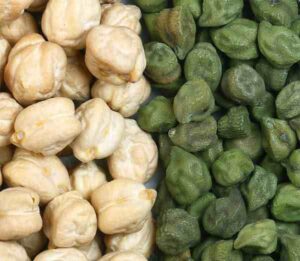

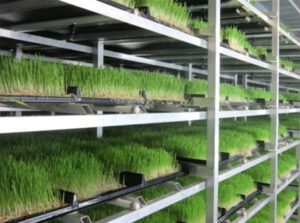
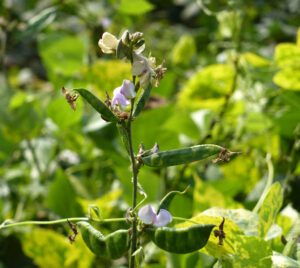
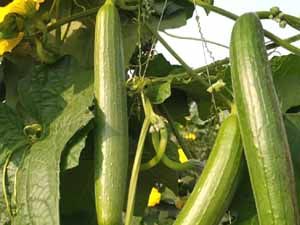
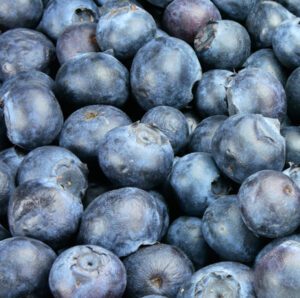
Thanks for the educative information
How can I sell/market the products?
Where are you from? You can contact with some local farmers who are already in this business. You have to determine the market first before starting this business commercially. Good luck!
These plants are not good for environment. So we should not plant this in commercial basis. Rather try planting other trees.